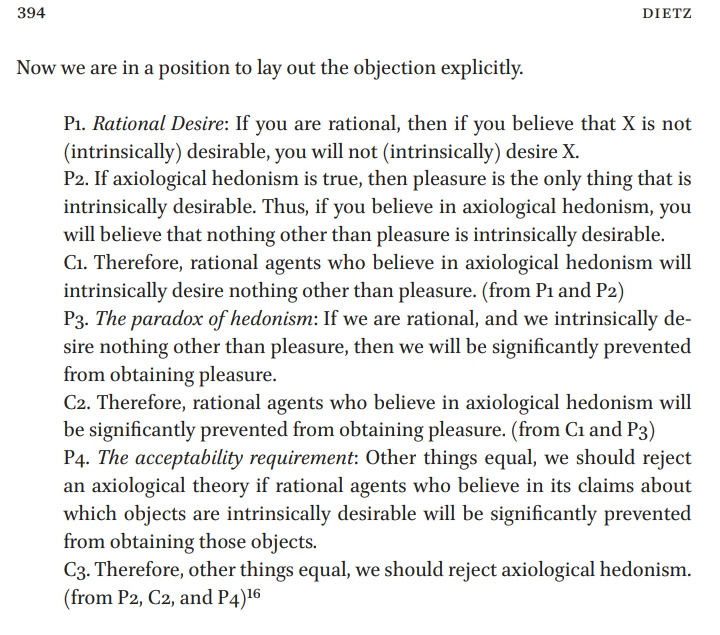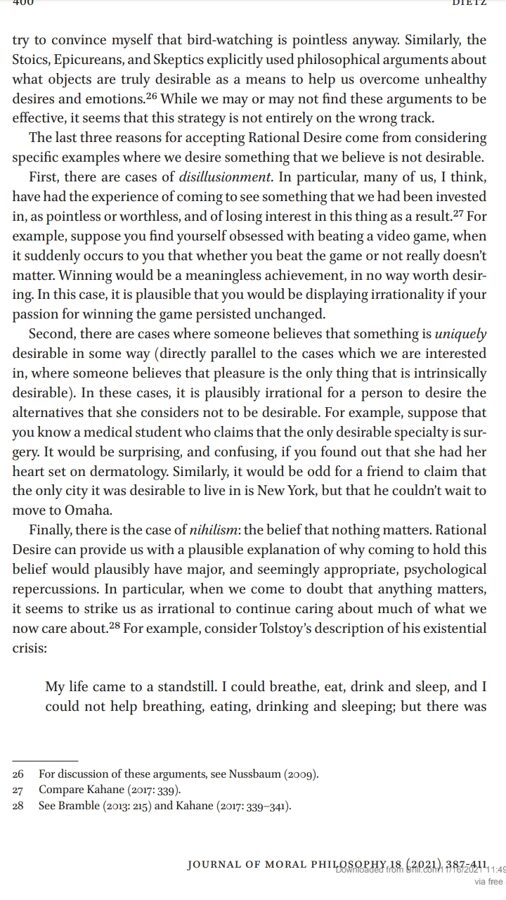Hedonism critics paradox
I had used telegram for a while , and here was an article about some modern ideas. And it's header catch my attention: "Hedonism paradoxes,..." - and something other. Here is the article, and here is the philosophical arguing. So let's talk about it!
Fist of all, paradox seems strange to me. Yes, you have to work with a biological body that has it's own (f)laws, and self-limiting is necessary. Where is the contradiction - at least if you don't believe you were created absolute ideal? Anyway in a major encyclopedias It is described as a pragmatical problem, not a theoretical issue. Nevertheless, the author bring all the logical steps right to the table. Here they are:

And the first step (P1) makes me laugh. Again, Rollo Tomassi: "You can not negotiate genuine desire". As simple as that. All the house of cards flow away just by this one fact. Great theory! But maybe author can protect his view? The answer is - he tried. So I'll f*ck up it point by point:

1) First, do you recognize desire - or just feel it? Recognizing anything is an abstract level of thinking - or, in other words, how you rationally interpret your basic psychological phenomena. They just are - and then, if you are adult human, you will work with that.
2) Analogy is not a proof. But it is even a weak analogy. I just recall russian joke: "Относись к людям так… как хочешь, так и относись. Потому что, ни хрена они не будут относиться к тебе так же, как относишься к ним ты…" (Respect people as you want - cause they will never respect you as good as you respect them). Life is not always reciprocal; world is unjust.
3) Wow! We can beat one desire by another! If I have a diabetes and I want to eat a candy, but I prevent this action cause I want to survive too - that means that all my desires are rational? Again, "would like to" means desire too. One is supported bu reason, one contradicts. The strongest survive, but there is no rational in desires' nature.
And again, we can believe in literally anything. Will it becomes true when it useful? Author believes so - it is "accessibility requirement"; but it is a strong hypothesis.

6 and 7 line - author bring examples when we still want something that is "rationally undesirable". Here it is: facts contradicts theory, but theory so good... maybe we can still pull on an owl to a globe? ;)
4) When you want something, and you have a causal theories about the world, you will seek for means to desirable ends. And when means appear to be useless, you will lose your interest. It is not rational desire, cause it was just a instrumental goal. Here you can find good explanation about why artificial intelligence is not stupid when he remake all the planet material to staples.
5) "something is uniquely desirable in some way" - and there is no other things in mind? Just one thing, one way of use, no basic needs and environment. And sinusoidal herd of absolute round horses is riding to the infinite line woods to drink the fresh vacuum.
6) "Rational desire is a plausible explanation why nihilism has a certain repercussions" NO. If you want to be more than you are.... No matter, if you just want something you can not have, it can leads to a depression. Plausible and more general explanation.
P.S. When I was reading this text firstly, I noticed when author said: many philosophers have a great sympathy to rational desire and accessibility requirement ideas. And I had think: these guys are probably more disagreeable and diverse in theoretical field, and majority probably not successful in a real life. So may be there is a common thing we must to avoid even under a death sentence case?